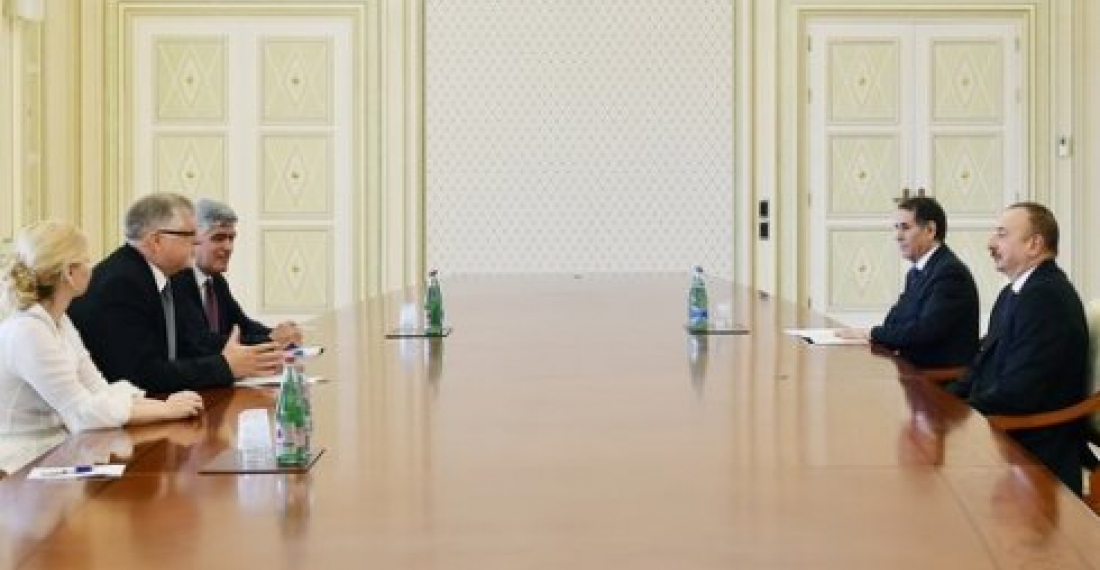The European Union Special Representative for the South Caucasus, Ambassador Herbert Salber, on Wednesday (19 April) met with the President of Azerbaijan Ilham Aliyev in Baku to discuss the latest developments around the Nagorno-Karabakh conflict and conflict resolution process. Ambassador Salber was accompanied by the head of the EU Delegation to Azerbaijan, Melania Mard and Senior Advisor Atanas Baltov.
According to a report on the website of the Azerbaijani presidency, Ilham Aliyev referred to his recent visit to the European institutions in Brussels during which discussions were launched on a new EU-Azerbaijan agreement. The Azerbaijani leader said that this was an important step for the further development of bilateral cooperation, and expressed the hope the negotiations would be continued actively and end on time.
"‘The sides have reached appropriate common understanding and the conclusion will depend on the process of negotiations", the president said.
Noting that the priorities of cooperation and partnership between Azerbaijan and EU have been defined long ago, the Azerbaijani president said there are certain experience of signing agreements and memorandums with a number of EU countries and these will help the process.
source: commonspace.eu with agencies
photo: President Ilham Aliev and EUSR Herbert Salber at their meeting in Baku on Wednesday, 19 April 2017 (picture courtesy of the press service of the President of Azerbaijan.)






